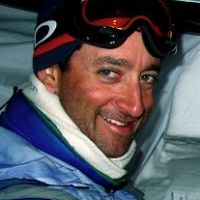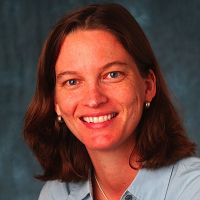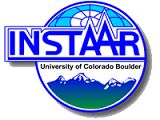Boulder Creek CZO post-doctoral opportunity in Geobiology or Hydrologic Modeling
The University of Colorado at Boulder, Institute of Arctic and Alpine Research is accepting applications for a one-year post-doctoral fellowship (extendable to two years) to work in the Boulder Creek Critical Zone Observatory. We seek candidates in one of two broad areas, who can take advantage of the people, field sites, and data associated with the Boulder Creek CZO. One area of interest is the deep critical zone, where incipient weathering occurs. We anticipate the successful candidate for this topic to bring some combination of geobiology, mineral weathering, organic aquatic chemistry and/or microbial genomics to bear on this frontier. The other area of interest is in modeling water movement in the critical zone. The candidate for this position would bring modeling skills aimed at understanding surface hydrology, ecosystem modeling, reactive transport, or surface water-groundwater interactions. Data sets are available on streamflow, soil moisture, groundwater fluctuations, snow cover, microbial ecology, stream chemistry, geochronology, as well as LiDAR in snow-on, snow-off, and (soon) post-flood conditions. Postdoctoral Associates would be expected to interact with a diverse group of researchers, and to participate in development of CZ-sim simulations for education and outreach. See criticalzone.org/boulder for more information.
Job description: The Research Associate (Post-doctoral researcher) will work with at least two faculty members associated with the Boulder Creek Critical Zone Observatory (BcCZO) on the research topic agreed upon at the time of hire. In the first 3 months, the researcher will produce an Individual Development Plan with their mentors to guide their development during their tenure at CU. The researcher’s responsibility is to produce publishable results from experiments, field observations, analysis of samples, analysis of spatial data, and/or from models. The work should be presented in at least one professional meeting during the year. The researcher will be responsible for making sure that data they generate is submitted to the BcCZO database. Any models generated must be documented, and preferably be published to the Community Surface Dynamics Modeling System (CSDMS).
The researcher is expected to be an active member of the BcCZO team, through participation in meetings and seminars, and through regular meetings with faculty mentors.
Apply to position RF01106 at https://www.jobsatcu.com/. Application materials include a CV, names of three references, and a cover letter outlining your research interests.
Applications will be reviewed starting March 7 until position is filled.
Contact: Noah Molotch () or Alexis S Templeton () for more details.
News Category:
RESEARCH |
OPPORTUNITIES
People Involved
CZO
-
Boulder, Sierra, INVESTIGATOR
-
Boulder, INVESTIGATOR
Explore Further




